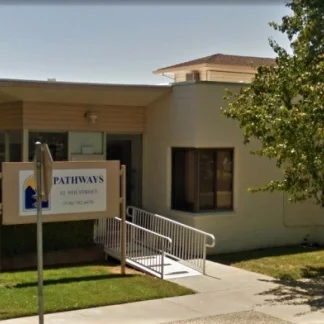Pathways Alcohol and Drug Treatment
Pathways Alcohol and Drug Treatment, located in Marysville, California, is an al...
Pathways Alcohol and Drug Treatment, located in Marysville, California, is an alcohol and drug rehab center that provides addiction treatment services to adults aged 18 and above. They provide a wide continuum of care that ranges from residential treatment to outpatient treatment.
The residential treatment program offers 24/7 supervision and a structured environment that allows individuals to learn new skills to maintain a strong foundation for recovery upon completing the program. Individual therapy, relapse prevention classes, process groups, and family therapy are provided.
The partial hospitalization program meets six days a week for seven hours at a time. Clients will continue to expand upon what they learned in residential treatment while practicing their life skills and recovery skills in their home environment.
The intensive outpatient program meets three days a week for three hours at a time. Some clients may attend up to five days a week if needed. Individual therapy, group therapy, and relapse prevention programming will continue at this stage of care.
Pathways Alcohol and Drug Treatment accepts most insurance plans, including Amerigroup, Anthem, Beacon, Wellmark, ComPsych, Kaiser, HCSC, Ambetter, Humana, and more. Out-of-network benefits may vary.
Contact us for more information: (530) 742-6670

Connect with Pathways by calling their admissions team directly.
(530) 742-6670 Website Get DirectionsThe Commission on Accreditation of Rehabilitation Facilities (CARF) is a non-profit organization that specifically accredits rehab organizations. Founded in 1966, CARF's, mission is to help service providers like rehab facilities maintain high standards of care.
CARF Accreditation: Yes
Research clearly demonstrates that recovery is far more successful and sustainable when loved ones like family members participate in rehab and substance abuse treatment. Genetic factors may be at play when it comes to drug and alcohol addiction, as well as mental health issues. Family dynamics often play a critical role in addiction triggers, and if properly educated, family members can be a strong source of support when it comes to rehabilitation.
Group therapy is any therapeutic work that happens in a group (not one-on-one). There are a number of different group therapy modalities, including support groups, experiential therapy, psycho-education, and more. Group therapy involves treatment as well as processing interaction between group members.
In individual therapy, a patient meets one-on-one with a trained psychologist or counselor. Therapy is a pivotal part of effective substance abuse treatment, as it often covers root causes of addiction, including challenges faced by the patient in their social, family, and work/school life.
Nutrition therapy, aka medical nutrition therapy (MNT), is a way of treating physical, emotional, and medical conditions through diet. Specific dietary plans are designed by professional nutritionists or registered dietitians, and patients follow them in order to positively affect their physical and mental health.
Group therapy is any therapeutic work that happens in a group (not one-on-one). There are a number of different group therapy modalities, including support groups, experiential therapy, psycho-education, and more. Group therapy involves treatment as well as processing interaction between group members.
In individual therapy, a patient meets one-on-one with a trained psychologist or counselor. Therapy is a pivotal part of effective substance abuse treatment, as it often covers root causes of addiction, including challenges faced by the patient in their social, family, and work/school life.
Nutrition therapy, aka medical nutrition therapy (MNT), is a way of treating physical, emotional, and medical conditions through diet. Specific dietary plans are designed by professional nutritionists or registered dietitians, and patients follow them in order to positively affect their physical and mental health.
In individual therapy, a patient meets one-on-one with a trained psychologist or counselor. Therapy is a pivotal part of effective substance abuse treatment, as it often covers root causes of addiction, including challenges faced by the patient in their social, family, and work/school life.
Nutrition therapy, aka medical nutrition therapy (MNT), is a way of treating physical, emotional, and medical conditions through diet. Specific dietary plans are designed by professional nutritionists or registered dietitians, and patients follow them in order to positively affect their physical and mental health.
Nutrition therapy, aka medical nutrition therapy (MNT), is a way of treating physical, emotional, and medical conditions through diet. Specific dietary plans are designed by professional nutritionists or registered dietitians, and patients follow them in order to positively affect their physical and mental health.
Pathways Alcohol and Drug Treatment, located in Marysville, California, is an al...
Al Anon Marysville, located in Marysville, California, is an outpatient 12 Step ...
First Steps is a public rehab located in Yuba City, California. First Steps spec...
Therapeutic Solutions - Tharp Road offers intensive outpatient programs for indi...